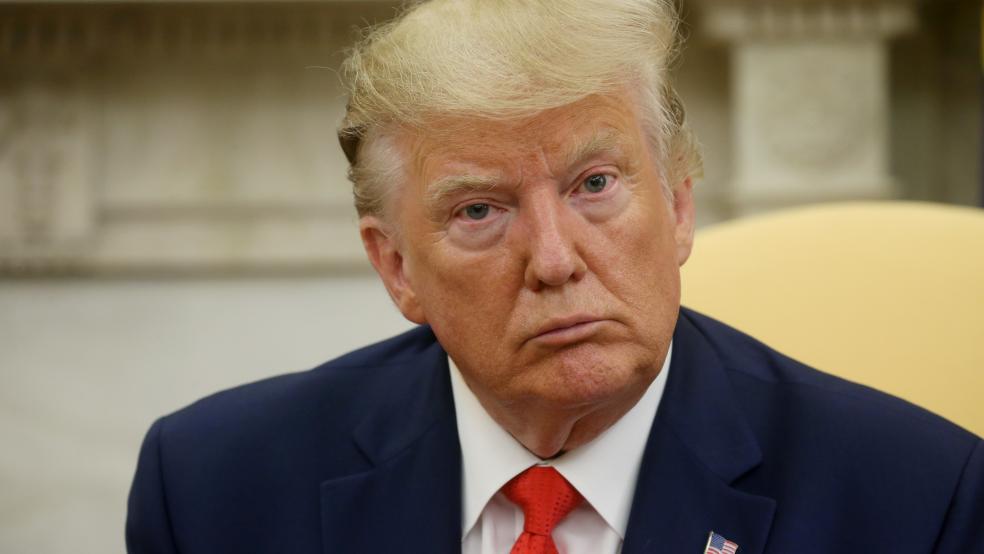President Trump blasted the “boneheads” at the Federal Reserve Wednesday for failing to reduce interest rates to zero or below.
“The Federal Reserve should get our interest rates down to ZERO, or less, and we should then start to refinance our debt. INTEREST COST COULD BE BROUGHT WAY DOWN, while at the same time substantially lengthening the term,” Trump tweeted.
While the president has criticized the Fed for failing to lower interest rates before, it’s been in the context of boosting the economy, and he hasn’t previously linked the issue to the cost of interest payments on the national debt.
A surprising suggestion: Trump’s comments mark the first time a U.S. president has called for negative interest rates, said MarketWatch’s Steve Goldstein. (Interest rates fell to zero during the Great Recession as the Fed sought to spur economic activity, but never went negative.) But they left many experts scratching their heads. While there has been some discussion in policy circles about taking advantage of low interest rates by issuing long-term bonds to build infrastructure (see this analysis at the Center on Budget and Policy Priorities), the idea of intentionally reducing rates to zero or below and refinancing the national debt is well outside the mainstream economic consensus in the U.S.
There could be some advantages: Analyst Dick Bove of Odeon Capital Group said that the reduced cost of the debt would offer obvious benefits. “From a theoretical standpoint, obviously it would be wonderful for the United States government over a period of years if it were to lengthen the maturities on debt that would have rates below 1%,” Bove said, according to CNBC.
But the benefits may be just theoretical: Economist Paul Ashworth of Capital Economics wrote in a note to clients Wednesday that while the idea of locking in low borrowing costs over a period of decades sounds appealing, “the evidence from other economies is that negative rates have provided little benefit.”
And the problems would be substantial: Among other things, reducing rates to zero or lower would be “an unprecedented action in the US that would be a sign of an economy in deep trouble,” wrote The Washington Post’s Heather Long. There are also legal issues involved, Ashworth said, that may make it difficult for the Fed to charge banks the fees associated with negative rates.
Mark Zandi, chief economist at Moody’s Analytics, said that there’s no obvious way to refinance the national debt. “It’s not viable and could be a significant problem for investors, financial markets and ultimately the economy,” Zandi told CNBC. “The debt is not prepayable. There’s a contractual relationship the Treasury has with investors. This isn’t a mortgage, this is U.S. Treasury debt. I think it would be incredibly disruptive to financial markets, and interest rates would ultimately rise, not fall.”
Trump framed the issue in part as a matter of competition with other advanced economies. “We have the great currency, power, and balance sheet … The USA should always be paying the the [SIC] lowest rate. No Inflation! It is only the naïveté of Jay Powell and the Federal Reserve that doesn’t allow us to do what other countries are already doing. A once in a lifetime opportunity that we are missing because of “Boneheads,” he wrote. But many economists say the negative interest rate policies in Europe and Japan are nothing to envy, and are likely harmful in the long run.
David Kotok of Cumberland Advisors said that “zero and then negative interest rates have created a monstrosity in Europe,” Politico reported, and Kotok warned that Trump’s desire “to follow Europe into this quagmire would harm every saver, every insurance company, every bank.” Along the same lines, Deutsche Bank CEO Christian Sewing said last month, “In the long run, negative rates ruin the financial system.”




